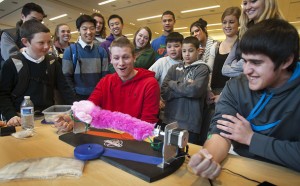 At UW’s Brain Awareness Week festivities, Kennedy Catholic High School students Thane Maudslein and Nick Correa use muscle activity to play Wrestle Brainia – an electronically powered device getting its signals through a computer hooked to the wrestlers’ arms. Wrestle Brainia was developed by Jeremiah Wander and Dev Sarma – graduate students in CSE’s Neural Systems Lab, and undergraduate student Vivek Paramasivam, with support from UW’s Center for Sensorimotor Neural Engineering. Read more →
At UW’s Brain Awareness Week festivities, Kennedy Catholic High School students Thane Maudslein and Nick Correa use muscle activity to play Wrestle Brainia – an electronically powered device getting its signals through a computer hooked to the wrestlers’ arms. Wrestle Brainia was developed by Jeremiah Wander and Dev Sarma – graduate students in CSE’s Neural Systems Lab, and undergraduate student Vivek Paramasivam, with support from UW’s Center for Sensorimotor Neural Engineering. Read more →

Wrestle Brania!
CSE’s Yoshi Kohno profiled in Columns
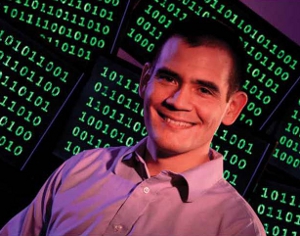 CSE professor Yoshi Kohno is profiled in the March issue of Columns, UW’s alumni magazine.
CSE professor Yoshi Kohno is profiled in the March issue of Columns, UW’s alumni magazine.
“Kohno’s experiments are the stuff of science fiction movies: using a kid’s Erector Set to spy on its owner, tracking a runner using his mileage monitor or even hackers taking over a car while it’s driving and forcing it to brake to a stop. The only difference between Hollywood make-believe and reality is that this white hat hacker doesn’t need special effects to make them reality.”
Read the full article here. Learn more about UW CSE’s Security and Privacy Research Lab here. Read the complete March issue of Columns here. Read more →
“Changing the Face of Computing”
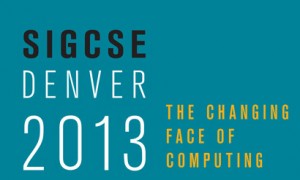 The opening keynote of the 2013 SIGCSE (Computer Science Education) conference on March 7 in Denver featured 7 5-minute “flash talks” on “Changing the Face of Computing.” The first – “Why Broadening Participation Matters” – was presented by UW CSE’s Ed Lazowska. See Ed’s slides here. Read more about UW CSE’s motivations and activities here. Learn about DawgBytes, UW CSE’s K-12 outreach program, here. Read more →
The opening keynote of the 2013 SIGCSE (Computer Science Education) conference on March 7 in Denver featured 7 5-minute “flash talks” on “Changing the Face of Computing.” The first – “Why Broadening Participation Matters” – was presented by UW CSE’s Ed Lazowska. See Ed’s slides here. Read more about UW CSE’s motivations and activities here. Learn about DawgBytes, UW CSE’s K-12 outreach program, here. Read more →
UW CSE’s Zoran Popović on NPR
 NPR’s Joe Palca today highlighted how computer gamers are helping to push the frontier of brain research. One of those interviewed was UW CSE’s Zoran Popović. Popović talked about Foldit, a game designed to tackle the problem of protein folding.
NPR’s Joe Palca today highlighted how computer gamers are helping to push the frontier of brain research. One of those interviewed was UW CSE’s Zoran Popović. Popović talked about Foldit, a game designed to tackle the problem of protein folding.
“People can get pretty addicted to computer games. By some estimates, residents of planet Earth spend 3 billion hours per week playing them. Now some scientists are hoping to make use of all that human capital and harness it for a good cause.
“Foldit has been a big success. Popovic says there are a half-million people registered to play the game, and that has made other scientists and inventors take seriously the idea of using games to solve scientific questions.”
Read full article here. Learn more about Foldit here. Learn about the Center for Game Science here. Read more →
“Kate Starbird, former basketball star, chooses a different route — as usual”
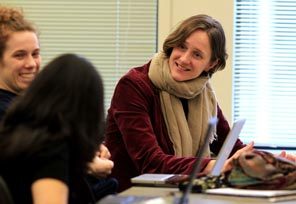 A lovely Seattle Times article on Kate Starbird, a faculty member in Human Centered Design & Engineering and an adjunct professor in CSE.
A lovely Seattle Times article on Kate Starbird, a faculty member in Human Centered Design & Engineering and an adjunct professor in CSE.
“Kate Starbird does what she can to brighten her dreary fourth-floor office at Sieg Hall. A picture of her newborn nephew is above her desk. A cluster of succulent plants sits below a window looking out onto the University of Washington campus.
“Starbird, 37, is a first-year assistant professor in UW’s Department of Human Centered Design and Engineering and director of the Emerging Capacities of Mass Participation laboratory. In English, that means she teaches how social media is used in crisis situations and how to design better applications for digital volunteers.”
Read more here. Read more →
UW CSE undergraduate teaching assistants
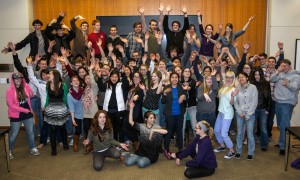 Why do CSE 142/143 ROCK (more than 2,000 students per year in 142; more than 1,300 per year in 143; off-the-scale student evaluations)?????
Why do CSE 142/143 ROCK (more than 2,000 students per year in 142; more than 1,300 per year in 143; off-the-scale student evaluations)?????
Great faculty, yes! But also, 60 PHENOMENAL undergraduate teaching assistants!
Go team! Read more →
UW CSE alum Ben Hindman profiled in Wired
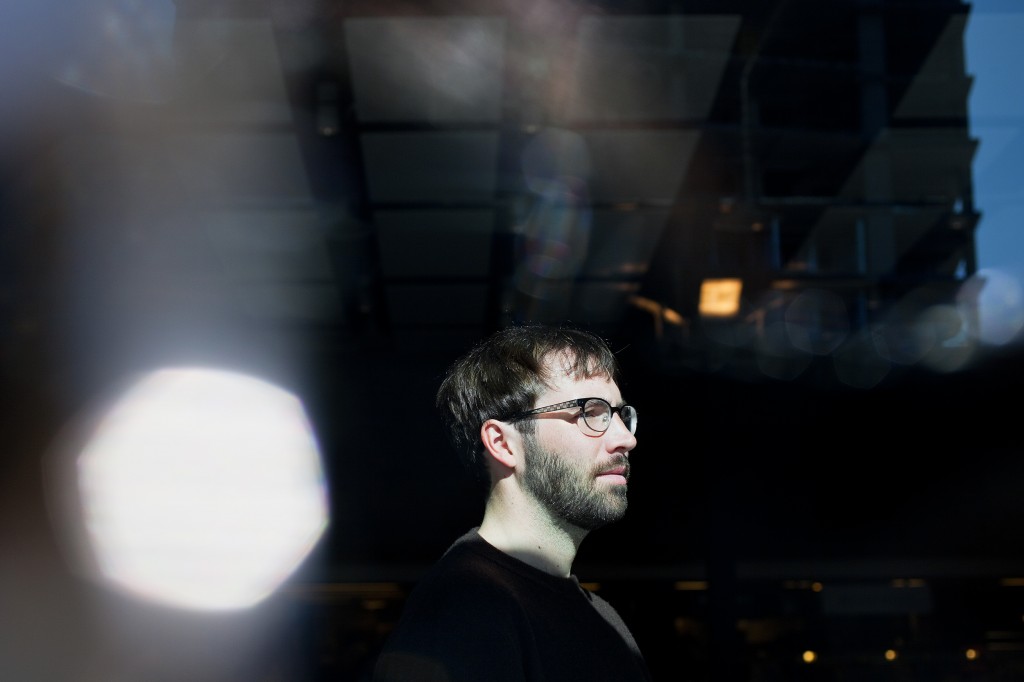 Star UW CSE bachelors alum Ben Hindman headed off to graduate school at Berkeley, then bailed for Twitter when the company adopted his Mesos system for efficiently parceling work across massive numbers of servers. Wired describes the work in “Return of the Borg: How Twitter Rebuilt Google’s Secret Weapon.” Read it here. Read more →
Star UW CSE bachelors alum Ben Hindman headed off to graduate school at Berkeley, then bailed for Twitter when the company adopted his Mesos system for efficiently parceling work across massive numbers of servers. Wired describes the work in “Return of the Borg: How Twitter Rebuilt Google’s Secret Weapon.” Read it here. Read more →
CSE’s Dan Grossman on MOOCs
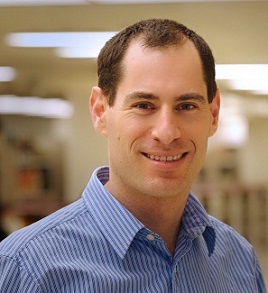 UW CSE professor Dan Grossman is profiled in a UW Provost’s report on enhancing teaching with technology.
UW CSE professor Dan Grossman is profiled in a UW Provost’s report on enhancing teaching with technology.
Grossman is teaching one of the UW CSE Coursera MOOCs this quarter: Programming Languages. (Arvind Krishnamurthy, David Wetherall, and John Zahorjan are teaching Introduction to Computer Networks.)
Says Grossman: “For me, it is largely about being passionate about the course material and how to present it. Given this passion, why would I not want the largest rooftop I can find from which to shout? … With so many students, some will have a transformative educational experience, others will learn very little, and most who express some interest will not end up participating. To compare it to a conventional course where students get personal attention, have significant financial investments, and have shared background as part of a coherent curriculum, is difficult. I instead prefer to compare it to writing a textbook. Just as many people touching a book do not read it and those who read it have a wide range of understanding as a result, the learning in MOOCs defies description.”
Read the profile here. Read more →
“Google Launches Sign Language Interpreter App For Hangouts, Adds Accessibility Features To Gmail, Drive And Chrome”
 TechCrunch reports on a new Google accessibility initiative, complete with a photo of UW CSE Ph.D. alum Anna Cavender, who works on accessibility at Google’s Seattle engineering office.
TechCrunch reports on a new Google accessibility initiative, complete with a photo of UW CSE Ph.D. alum Anna Cavender, who works on accessibility at Google’s Seattle engineering office.
“Google announced that it has added a number of accessibility to Chrome, Chrome OS, Gmail and Google Drive that should make using Google suites of web apps a bit easier to use for blind and low-vision users. In addition, Google also launched a new sign language interpreter app and keyboard shortcuts for Hangouts for the deaf and hard of hearing, as well as those who can’t or don’t want to use a mouse while using Hangouts.”
Read more here. Read more →
